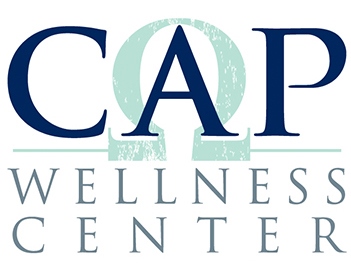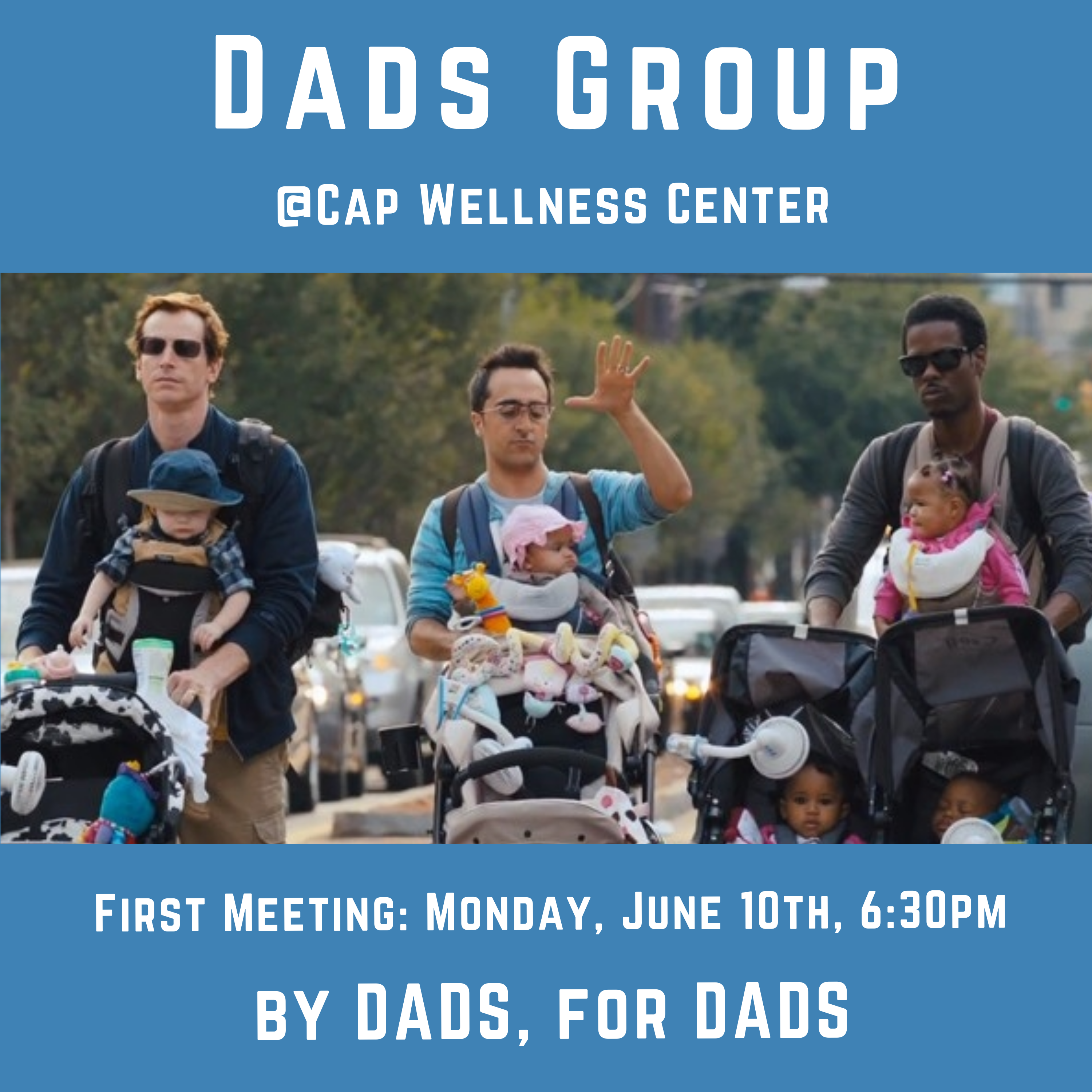by Dr. Jay Warren (as published in Pathways Magazine)
Nowadays, Dads play an essential role in prenatal care, birth preparation and in labor and delivery. New fathers are also now expected to be active caregivers in the first days, weeks and months of their child’s life – bathing, bottle feeding, diaper changing, clothing, soothing, cuddling, putting down to sleep, playing – all the things parents do to care for a newborn. As they should. But this wasn’t always the case.
Today it is common for us to see images of men massaging lower backs in labor and catching babies in birth tubs. But not too long ago, the images we saw were of men passing out cigars in the hospital waiting room after hearing from the doctor that “It’s a boy!” or “It’s a girl!” Generations ago, men were not a part of pregnancy, birth or early parenting. The father was relegated to the role of the Provider/Protector of the family unit and when the child was older, the role of the Disciplinarian was added and then maybe the role of the Teacher/Mentor.
So much has changed for the better.
My own father was part of a pilot program in the early 1970’s where they experimented with “allowing” fathers to be in the delivery room. My birth fell within a 3 month trial period at St. John’s Hospital in Los Angeles, CA. But my father almost wasn’t there. On the night of my birth, my mom’s regular OB wasn’t available and the OB on call was not supportive of this new program. As the family story goes, my dad and this OB were yelling at each other in the hallway about whether or not he would be permitted into the delivery room when my mom shouted at them, “Would you two figure this out later? I’m going to have a baby!!!” My dad was allowed in and I was born with him there beside my mom.
Fast forward to me becoming a Dad: I went to every prenatal visit (except for one when I was too sick to go) and I was actively involved in the birth planning and decision making.
I was present at my son’s birth who was born at home. It was just me, mama, the midwife and the doula. I got to catch him. I got to cut the cord. I got to be the first one he “meconium pooed” on.
Only a few weeks into parenting life, I spent my first day caring for my son alone. Was I nervous? You bet! We did great together and I texted plenty of “proof of life” pictures throughout that day to keep mama calm at work. I remember feeling so relieved when mama got home that night though to relieve me from baby duty. And while enjoyed sitting back and watching her doting on our son, I also enjoyed basking in the glow of a Dad’s job well done.
As our parenting lifestyle unfolded, with her work schedule and mine as it was, I spent half the week with my newborn son. Full days together, just us two. And it didn’t feel unusual or abnormally stressful to me doing this because I was “just the dad”. It just…was. I enjoyed doing it and felt grateful that I got to do it.
But I hear so many stories in my practice that the level of Dad’s involvement with the baby in the first few months is very different. Many fathers-to-be we see in our prenatal wellness center are going to the birth education classes, attending prenatal visits and there at the birth. But I hear from the new moms afterwards that their spouses are not engaged in newborn care despite their efforts to get the Dad involved. I hear comments like, “He won’t help with anything since he says I’m the one breastfeeding and knows how to do everything” or even, “My husband? Oh, he’s useless. He has no idea what to do.” The new Dads are described to me as detached, uninvolved, uninterested, oblivious, incapable, inconvenienced, frustrated and annoyed.
Now in some cases, I’m sure that’s true. But the majority of the new Dads I’ve worked with do not feel this way. Are they frustrated? Yes. But not detached or uninterested. Annoyed? Maybe. But not for the reasons their spouses think.
The frustration we feel comes from the pressure of the unclear expectations placed upon us as new Dads and not really knowing how to fulfill them. We don’t have any generational experience to draw upon because our grandfathers, great-grandfathers and beyond were not involved. And we have little cultural reference because this current version of what an active father actually looks and feels like is so new. So we are lacking the resources and support we need to help us navigate this major life transition into Dadhood. And as frustrating as that is, what is worse is that we feel like we are letting our families down.
But that too can change for the better.
The first thing that we can do to help new Dads is to make sure an open dialog between Mom and Dad about what new parenthood will look like and the expectations that each bring to it is happening. I’ve found that the birth education classes we teach start a similar type of dialog for couples. However, it usually only focuses on the last trimester of pregnancy and the onset of labor, but then it stops at birth.
If Moms and Dads continued this exploration of what new parenthood is going to look like for them once baby has arrived and about the expectations each other has for the first days, weeks and months together, then so much strife could be avoided. Parents-to-be should have discussions about: How are the tasks of nighttime diaper changes, laundry, meal prep and dishes going to be divided or who is responsible for each? Who is going to which appointments with baby? Who’s going to manage the grandparents? Who’s making sure the bills are paid on time? Who’s going back to work and when? And then what’s supposed to happen when the other walks through the door from work at the end of the day? What does that (and so much more with early parenting) all look like?
Getting both Mom and Dad on the same page is essential for their family unit to be strong and functional during this significant transition from couplehood into parenthood. A united Mom and Dad care for their baby so much better together.
But I feel that new Dads also need support from other men as well through this transition to Dadhood. A kind of support that can only come from other men. In my experience, men in a group class setting with their spouses sitting next to them share only a superficial layer of what’s really going on inside them. For generations, men have been taught that when it comes to their family, they need to provide, protect and lead. I don’t feel that any of these roles are bad ones to assume and I believe that being strong within each one of them will indeed serve our families. But what it means to be a Protector, a Provider and a Leader in today’s family is much different than what it meant to generations of fathers long ago. The roles that were passed on to us by past generations need a modern upgrade. I don’t pretend that I know just how those roles should be upgraded exactly. But I feel new Dads need ways to explore this and figure it out together.
By being part of a few men’s groups myself, I’ve seen how the group sharing dynamic shifts when it is “men only”. If a safe space is set up, if ground rules are established and boundaries are consistently maintained, then I’ve seen men open up in powerful ways that do not happen in mixed groups. Men share their frustration about not relating well with their kids and their sadness about the level of disconnect they feel with their wife. They admit their despair in feeling that they are losing their marriage and screwing up their children despite trying everything they can to keep it all together. Sometimes this the first time that a man has not only said these things out loud, but the first time they have admitted to and been honest with themselves about these feelings.
Our new Dads need this kind of space to be able to open up and show our chinks in our armor without worrying that our family will think less of us. When trust is built, vulnerability can be shared. When safety is felt, worries and fears can be shared. Statements of “I never seem to be able to calm the baby down quickly enough so then she swoops in frustrated with me that she has to do it again” is met with some new tips and tools that might do the trick next time. Confessions of “I just don’t feel that connected to my baby yet, not like her mom does…and I’m worried I’m not going to love them enough” is answered by “I went through the same thing, it’s normal, don’t worry, it’ll kick in soon enough.”
When you’re in overwhelm and so inside your own bubble, a simple reassurance that what you’re going through is normal and that we’ve all been there too can make a huge difference.
Ironically, isn’t it when we finally admit these fears, being open and vulnerable about what is challenging us that it usually brings our family closer together? But most men have never been taught how to share deep feelings openly and we are afraid that we will disappoint our closest loved ones. So when the overwhelm of new parenthood hits us, we try to compartmentalize it and control it ourselves. If that doesn’t work, then we isolate ourselves so no one sees our failure. But when we pretend the problem doesn’t exist, it doesn’t stop us from feeling the pain of it. And we dig ourselves into a deeper and deeper hole with many unhealthy consequences, for ourselves and our family. But we’re not alone.
So in a “New Dads Group”, having a safe place to talk about whatever is on your chest that night has the potential to create powerful changes in not only that man’s life, but in his family as well. Of course, a “men’s only” group is not the only place this can happen. I’ve just seen that sometimes it is easier for men to start opening up with a group of relative strangers, but with whom they share a common bond: Dadhood. Then with practice and repetition, the hope is this new ability to express vulnerability and honesty is brought back home and shared within the family as well. Even if the monthly meeting is a place to “blow off steam” and not feel so alone, it will help the family be just a little bit healthier.
The transition into Dadhood can be an overwhelming experience for men, just as the transition into Motherhood can be for women. But we don’t have to feel so alone in figuring it out. Communicating and managing expectations is the key to both Mom and Dad feeling supported, cared for and loved as they navigate their way in becoming a happy, happy family together.

